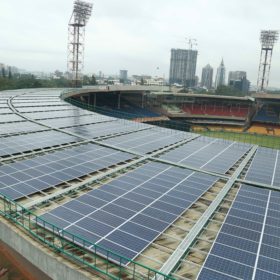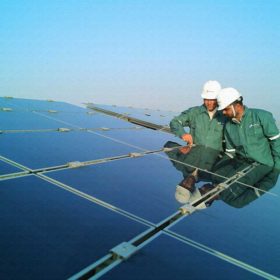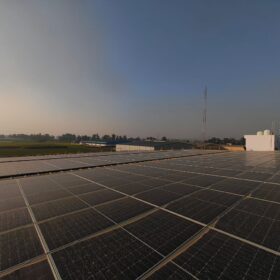2020 Solar Match: Chasing the Target
While openers like SRISTI scheme for rooftop solar and KUSUM for farmland solar are likely to give a promising start, their implementation on the ground will determine our winning trajectory this year. Simply going by the connotation of 6 balls an over in the game of Cricket, this article looks at 6 factors that will push India to achieve its 2022 solar target.
SECI tenders another 1.2 GW of grid-connected solar projects across India
Bidders can pitch for up to 300 MW of generation capacity per project with the deadline for proposals on February 4. The eighth tranche of inter-state transmission system program capacity offered by the Solar Energy Corporation of India comes with a solar energy price ceiling of Rs2.78/kWh.
2636 EV charging stations sanctioned under Fame India Phase II
Of these, 1633 charging stations will be fast charging stations and 1003 slow charging stations. With this, about 14,000 charging stations will be installed across the selected cities.
Proposals invited for joint Indo-Hungary research in renewable energy
Multidisciplinary research teams and linkages to industrial partners are highly encouraged. Project duration is 36 months. The deadline for submitting the applications is March 11, 2020.
AEPPL to invest Rs37.15 billion in second phase of lithium battery plant
The joint venture between Japanese majors Toshiba, Denso and Suzuki will make the investment in the Gujarat plant over the 2021-25 period, having pumped Rs12.5 billion into the first phase of development.
PM’s office reportedly considering waiving carbon tax on coal
As Germany shuttered another of its nuclear power plants on New Year’s Day, Narendra Modi’s office was said to be considering a proposal which would make coal more competitive with renewables in India.
Gayatri Projects completes sale of power assets to Singapore-based Sembcorp
The company sold its 5.95% stake in Sembcorp Energy India—held through subsidiary Gayatri Energy Ventures—for Rs 4067.70 million.
Solar set for boom after a gloomy 2019
Solar installations in year 2020 are set to exceed 10 GW after a year hit by political uncertainties, module price increases associated with safeguard duty and a fewer number of awarded tenders. The outlook for battery energy storage installations for solar projects, however, is bleak as such combinations in India can cost 3-5 times more in 2020 than standalone renewable projects.
TBEA’s new 2 GW factory in India to produce string and central inverters
pv magazine recently attended the opening ceremony of TBEA’s GW-class new energy equipment manufacturing base in Bangalore–the city that also hosted the recent Intersolar India exhibition and conference in the same week as TBEA’s inauguration ceremony.
Qatar Holding gets CCI nod to buy 25% stake in Adani Electricity Mumbai
As part of the transaction, both the parties have agreed to ensure that over 30% of the electricity supplied by Adani Electricity Mumbai Ltd will come from solar and wind power plants by the year 2023.














